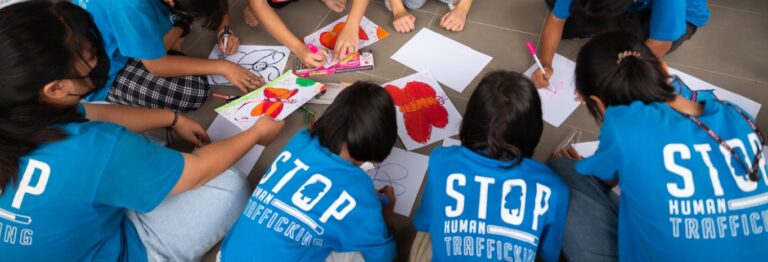Ethical storytelling is more important than ever. Here’s why nonprofits need to take a strong stand and commit to higher standards when sharing the stories of others.
Ethical Storytelling: What We Learned
When our President, Rachel Goble, began to formulate the idea of ethical storytelling in regards to how nonprofits approach narratives, her initial impetus came from the impact on the beneficiaries—how it affects their dignity and respects them as an empowered agent in their own lives.
As Goble shares about what she learned about Cat, our first scholarship student and the subject of our original documentary:
“As the organization continued to grow, and Cat and I developed a close friendship, I learned that she didn’t want to be remembered by the world in the light we had cast her in in that film. She began to teach me that we hadn’t stewarded her story well. Had it worked to gain donors? Absolutely, but was it dignifying to Cat? Debatable.”
Thus began a journey in learning about how to tell stories better, learning how to tell them in a way that respects—rather than uses—the subject.
What’s More…
Ethical storytelling is a concept that is still evolving and respecting the subject has become the guidepost. However, another important reason to engage in ethical storytelling is the respect it shows to another audience: donors. Ethical storytelling is, at heart, an assertion that donors can handle and appreciate the messy and the complex. We respect that donors would want to know the stories that people in need want to tell—whether dramatically appealing or not—and that a more honest connection between donor and beneficiary would actually go a lot further in helping solve the problems we collectively face.
If nonprofits cherry-pick stories, or focus on what drives pity, even if it’s truthful, we may miss important facets of the situation that could help us find better solutions. We have to take care not to be so blinded by our agendas, blinded against anything that doesn’t fit our narrative, that we forget to truly see the people we’re meant to serve. If we do this enough times, we risk eroding trust: the beneficiaries’ trust and the trust of donors.
Now More Than Ever
It can feel, these days, that our world is frightening and uncertain. In an era of “echo chambers” and “fake news,” it can sometimes feel difficult to have a conversation in which different sides can even agree on basic facts. It doesn’t have to be this way, and we can each do our part to build bridges. Nonprofits can—and have an obligation to—play an important role in facilitating a connection of mutual trust and respect, where the relationship between donor and beneficiary becomes a collaborative one. The more we engage in dignifying and respectful storytelling, the deeper and more meaningful our invitation to join in positive change becomes.
To learn more about ethical storytelling, check out this piece, go to our partner website here and sign the pledge here.




